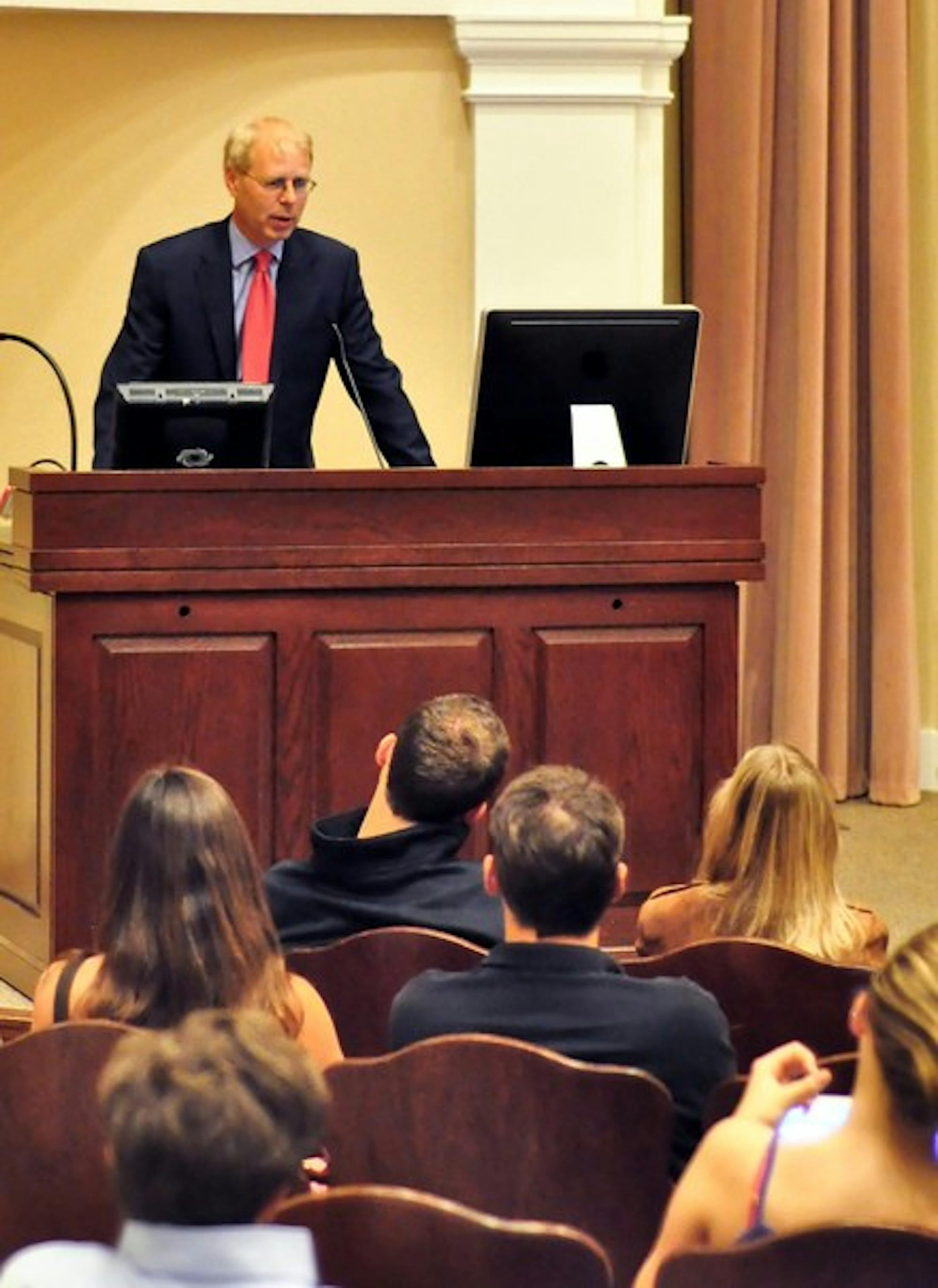In his lecture, Bartholomew used the example of the hypothetical country "Welfaria," a welfare-based state, to explain his criticisms of publicly funded social assistance programs.
"Welfaria is run by some very well meaning politicians elected by well-meaning people, but has somehow gone very badly wrong," Bartholomew said.
Bartholomew argued that democracy allows governments to develop into welfare states because citizens act on their emotional reactions to current conditions and problems.
"The democratic system has an enormous potential to generate emotional, short-term decisions," he said.
Governments fail primarily due to this inherently flawed nature of democratic systems and because of the presence of monopolies, Bartholomew said.
"Government services tend to be monopolies, and monopolies tend to have major drawbacks -- they have no competition and no incentive to improve the product," he said.
Local governments are far more effective than large, national governments, Bartholomew said, adding that small, local governments act as "one defense of democracy."
Bartholomew criticized governments that give extra benefits to single mothers, stating that these benefits correlate with an observed increase in the number of children born out of wedlock.
"This has arguably caused a complete revolution in the number of children born out of wedlock," Bartholomew said.
Although some audience members at the lecture, which was structured as a dialogue between Bartholomew and his audience of about 40, contended that the increase in single mothers was caused by a change in social norms, Bartholomew maintained that the existence of welfare contributed to this shift.
"Most of these [women who become pregnant out of wedlock] are not ambitious career women, but women already receiving benefits who are not trying as hard as they used to not to get into that situation," he said.
Bartholomew also argued that many government agencies shelter their workers.
"It may be the case that the people who set the pay are also public employees, and it's kind of a club where nobody loses their job," he said.
Bartholomew agreed with several audience members who argued that tenure-based employment policies attract underqualified employees, and added that the bureaucracy and lack of standards in school systems cripple public education.
He suggested that public school teachers would be more effective if they had a wider range of disciplinary methods at their disposal, such as corporal punishment.
"How many children are in classes where they're not learning anything for the lack of one or two children getting a sound thrashing?" he asked rhetorically.
The Dartmouth College Libertarians invited Bartholomew to campus after member Kayte Suslavich '09 read his book "The Welfare State We're In" in a reading group organized by economics professor Meir Kohn.




